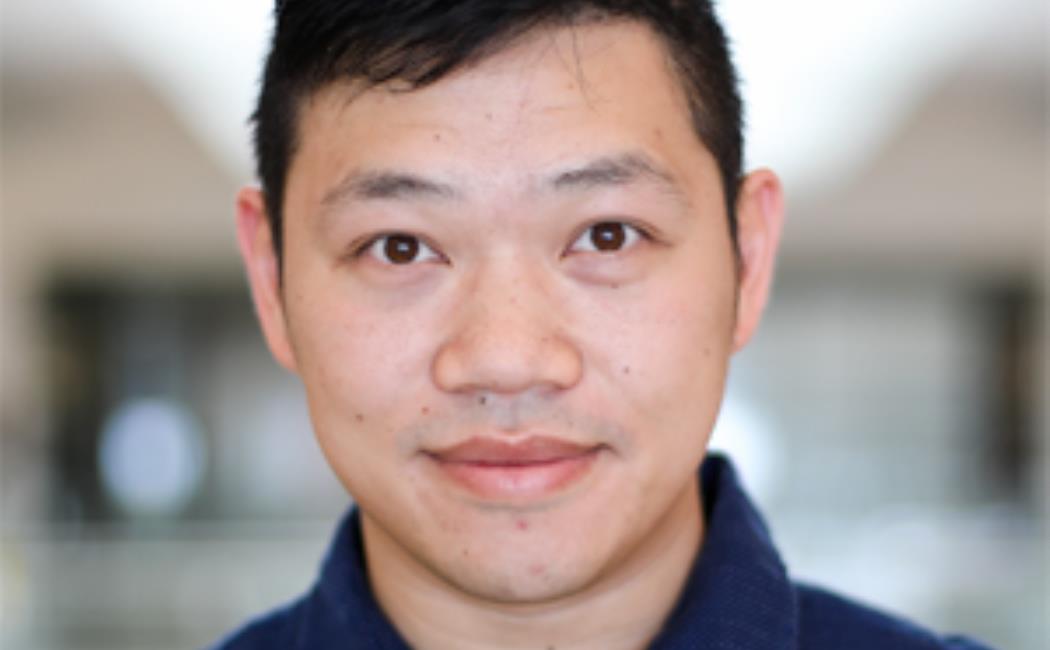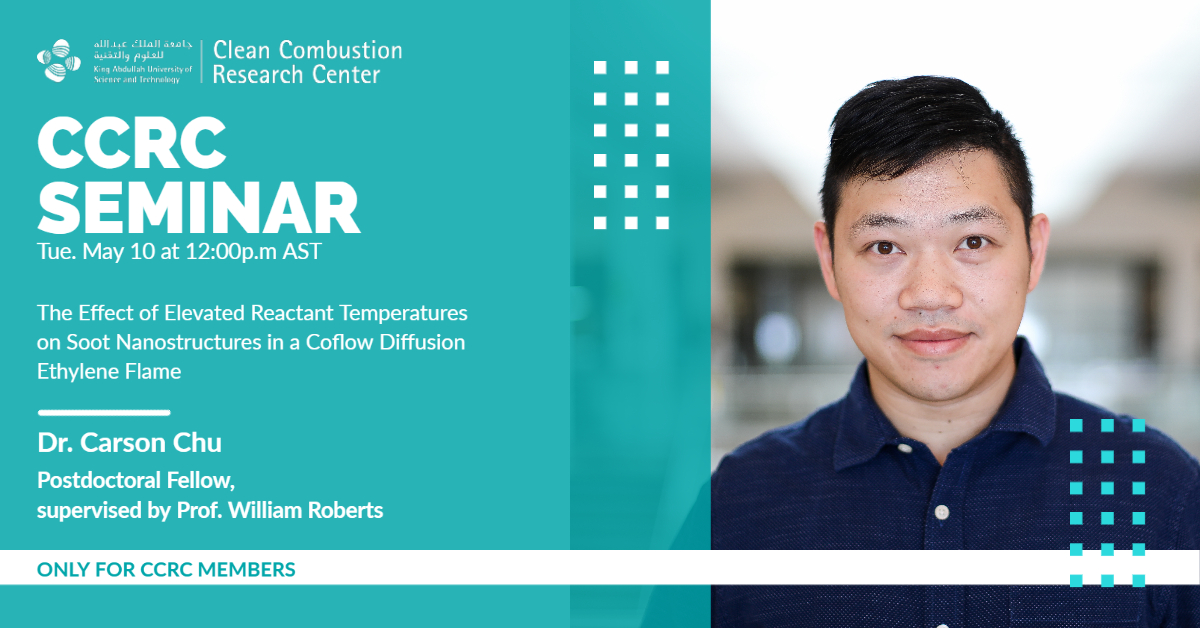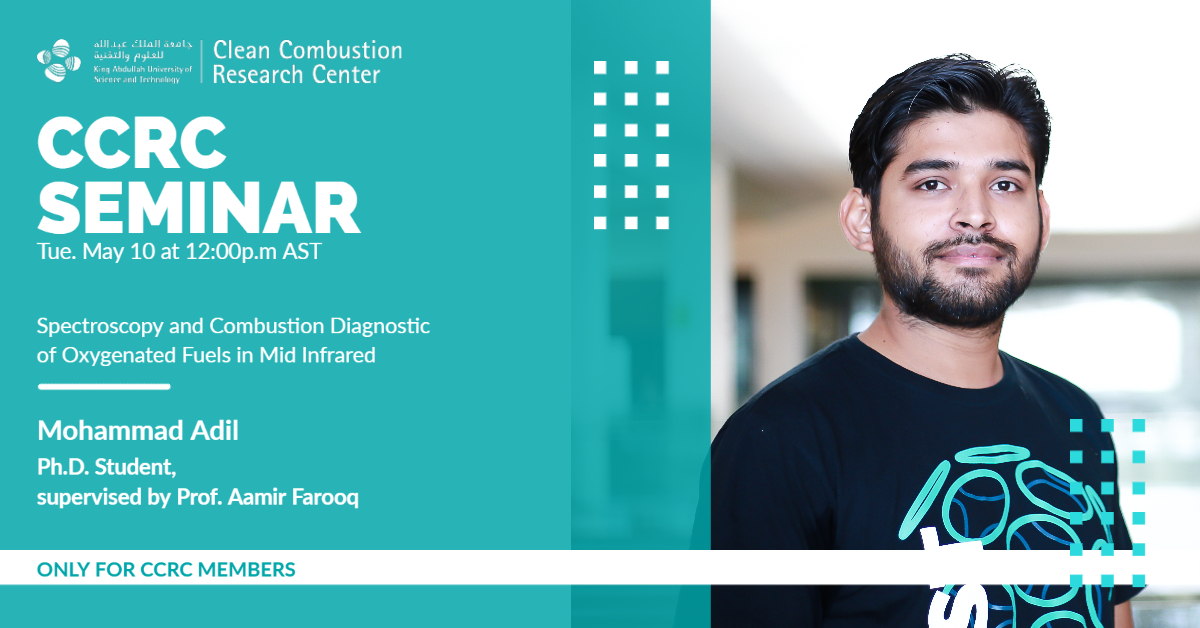


The talks are on:
Dr. Carson Chu
Postdoctoral Fellow, supervised by Prof. William Roberts

Abstract: The relationship
between soot surface growth, soot nanostructure and reactant temperature (Tr)
in a coflow diffusion ethylene flame was investigated with multiple
experimental techniques. The Tr was raised by heating the coflow air. Three
cases, with 300K, 473K, and 673K Tr, respectively, were studied. Laser-induced
Incandescence revealed that increasing Tr promotes soot formation. Although
soot primary particle diameter (dp) also increases with Tr, the increase in dp
slows down after 473KTr, suggesting that there is a deceleration in soot
surface growth. Transmission Electron Microscopy (TEM) imaging showed that
increased Tr promotes soot aggregation and yields larger and more mature
primary particles. The assessment of the Selected Area Electron Diffraction
(SAED) patterns indicated that,at 673KTr, there is a growth of lattice planes.
Raman spectroscopy revealed further structural details. By assessing the band
intensity ratios, soot for the Tr of 673K has more curved nanostructures. The
deceleration of soot surface growth may be explained by surface aging, which is
characterized by an increase in curved nanostructures.
Bio: Dr. Carson Chu joined CCRC in April 2022 as a postdoctoral fellow in Prof. Roberts’ group. He obtained his PhD from University of Toronto under the supervision of Prof. Murray Thomson. His research interests include experimental and numerical studies on soot formation in flame environments.
Mohammad Adil
Ph.D. Student, supervised by Prof. Aamir Farooq

Abstract: The development of clean and efficient combustion systems requires detailed kinetic modeling, which must be validated against experimental data. In particular, oxygenated fuels have recently drawn attention due to their favorable properties for use in engines, potentially enhancing performance and lowering emissions. Laser absorption spectroscopy is an excellent diagnostic tool for such studies. Unfortunately, there is limited availability of high-temperature absorption spectroscopic data, which is needed for laser-based sensor developments. In this work, a methodology for obtaining mid-IR absorption spectroscopic data of gaseous molecules at high temperatures and pressures is presented. The measurement of broad vibrational bands (>150 cm-1) in shock-heated test gases has been performed with a broad-scan external cavity quantum cascade laser with a tuning rate in excess of 30000 cm-1 s-1. These measured spectra have provided a significant idea about the trend in spectra at elevated temperatures and helped in the selection of promising wavelengths for sensitive detection, especially in combustion applications. To demonstrate the laser-based sensor, we applied the sensor for pyrolysis & oxidation studies and updated the mechanism.
Bio: Mohammad Adil is currently a Ph.D. student in mechanical engineering (KAUST) under the supervision of Prof. Aamir Farooq. He received his MS degree in Energy Engineering from the Indian Institute of Technology Guwahati, India. His research activities focus on laser absorption spectroscopy for combustion applications.